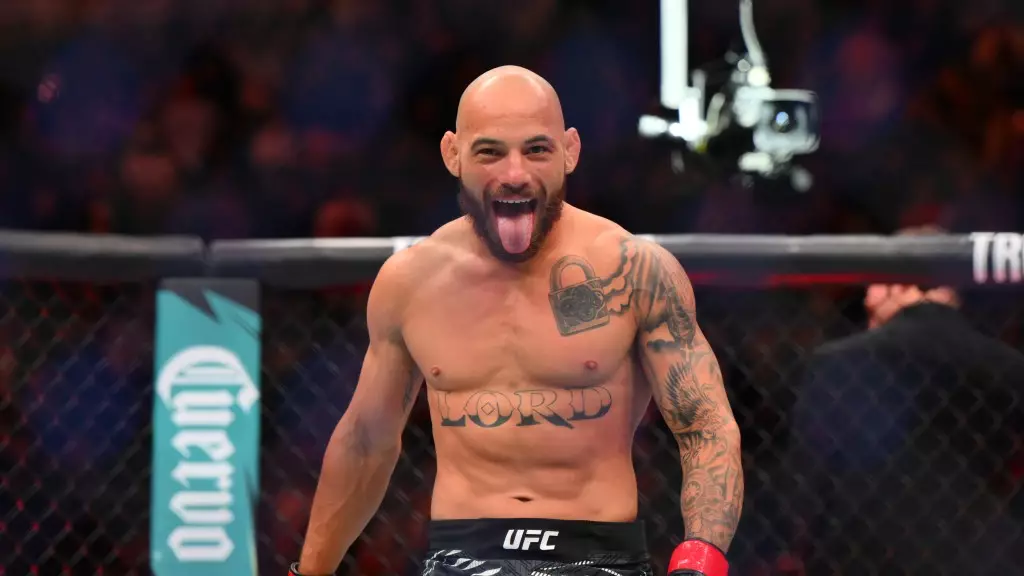In the cutthroat world of mixed martial arts, psychological warfare often plays a crucial role in pre-fight dynamics. Recent comments from featherweight contenders Bryce Mitchell and Jean Silva illuminate this phenomenon, highlighting the intersection between mental fortitude and physical prowess. As Silva prepares for their highly anticipated bout at UFC 314, the verbal sparring has taken a bizarre turn, with Mitchell suggesting that Silva is possessed by demons. While such theatrics may appear outlandish to the casual observer, they underscore the pressure fighters endure as they gear up for battle.
Fear and Psychological Strategy
Mitchell’s assertion that Silva is battling inner demons, purportedly controlling him, seems to stem from a position of fear rather than an accurate psychological assessment. Silva, who boasts an impressive record of 15-2 and remains undefeated in the UFC, has swiftly responded to these claims, arguing that Mitchell’s statements reveal more about his own anxieties. The fighter’s retort points to an essential truth about the sport: fear can manifest in unpredictable and even irrational ways. Silva’s challenging tone serves as a strategy to unnerve Mitchell, transforming mental unease into a crucial psychological advantage before the physical bout commences.
The Role of Social Media in Modern Fight Promotion
Social media functions as an ever-evolving battleground for fighters looking to create buzz around their upcoming matches. Silva’s quick response on X (formerly Twitter) is a prime example of this phenomenon. In a world where every comment can be amplified or dissected in seconds, both fighters know the stakes involved in public perception, and how even a hint of weakness can be seized upon by an opponent. Silva’s incisive jab at Mitchell’s masculinity, referencing testosterone as a “hormone” that could indicate problems, cleverly combines bravado with psychological probing.
The Intersection of Masculinity and Vulnerability
Compounding the sensationalism is the overt discussion of masculinity and vulnerability in the context of MMA. By questioning Mitchell’s relationship with women and testosterone, Silva digs into a cultural narrative that equates fighting prowess with masculine dominance and emotional repression. This highlights a broader social dynamic within combat sports, where fighters are often trapped between the persona they project and their internal struggles. Whether or not Mitchell’s comments stem from legitimate fears or are simply part of the show, they point to a deep-rooted tension that plagues many male athletes in high-stakes environments.
April 12: The Moment of Truth
Ultimately, the culmination of this psychological chess match will materialize in the octagon on April 12 at the Kaseya Center in Miami. The fierce buildup and undeniable tension between Silva and Mitchell reflect the complexities of human emotion and competition. As both athletes prepare to settle their differences physically, the echoes of their verbal sparring will linger long after the final bell. In the realm of combat sports, it’s not just the fighters’ techniques that will be tested, but their mental resilience, fortitude, and ability to confront—rather than succumb to—the fears that lurk in the shadows of their consciousness.

